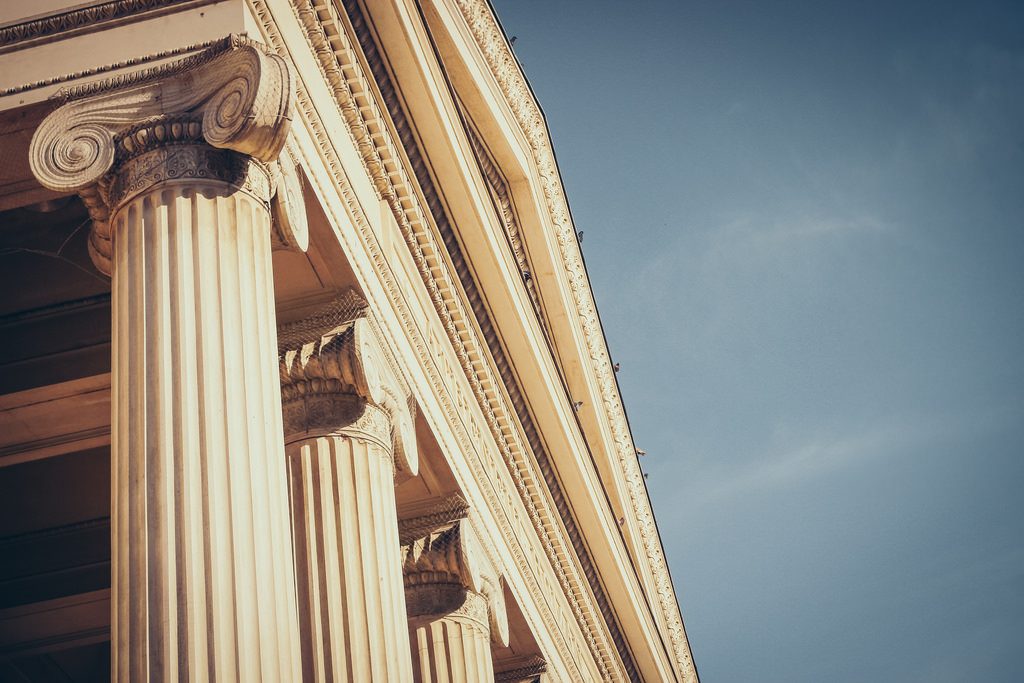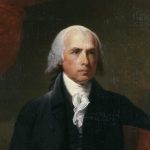This essay is part of a series on Liberalism. See the full collection here.
For some time, I’ve regarded the word “liberalism” as an expression now invested with so many contradictory meanings that it has become useless as a way of describing a consistent set of principles with particular implications for political order. The twentieth-century philosophers John Rawls and Robert Nozick were typically described as “liberals.” Yet their positions on, for instance, questions of political economy were light years apart.
In his book Why Liberalism Failed, Patrick Deneen outlines a very specific understanding of liberalism and why he thinks it’s a problem. Liberalism, he writes, is an ideology that, like any ideology, is concerned with remaking society in ways at odds with the truth about man. According to Deneen, many of America’s present problems, ranging from higher education’s ongoing crack-up to the emergence of transhumanist fantasies, mirror the triumph and internal contradictions of liberalism-as-ideology.
Reading through Deneen’s book, I found myself agreeing with many points. He correctly underscores, for instance, the deep chasm between the way that certain Greeks and Romans, the Hebrew prophets, and (small “o”) orthodox Christianity understand freedom, and the conception of liberty-as-autonomy articulated by liberals ranging from John Stuart Mill to Richard Rorty. The distinction lies, Deneen specifies, in “fundamentally different anthropological assumptions”—most of which, I would argue, reflect different views of the nature of human reason and the will, and of the content of happiness and how it is realized.
Start your day with Public Discourse
Sign up and get our daily essays sent straight to your inbox.Deneen also illustrates that, whatever is meant by the phrase “liberal order,” it is presently living, parasitically, off of pre-liberal moral and cultural capital that liberalism has proved incapable of replenishing. The further liberal order gets away from these sources—Christianity, the tradition of reasoning we call natural law, etc.—the less coherent it becomes. Witness the way in which the language of rights, a hallmark of liberal order, has been used to open the door to such anti-human developments as abortion on demand and euthanasia.
Alongside these positions, however, Deneen advances several arguments that I find less convincing. I agree, for instance, with some of Robert Reilly’s criticisms of Deneen’s interpretation of the American Founding. But I have three other broad critiques to offer in this essay.
Not So Modern
The first involves Deneen’s genealogy of ideas. Deneen maintains that basic elements of liberal order, such as the rule of law and constitutionalism, draw upon key ideas fostered by antiquity before being clarified and further developed by Christianity. One achievement of liberalism, he states, was that it highlighted the gaps between these ideas and various pre-modern realities such as serfdom.
At the same time, Deneen argues that liberalism facilitated a radical rupture in the West’s development. Thinkers such as Thomas Hobbes, René Descartes, and Francis Bacon facilitated a “revolutionary reconception of politics, society, science, and nature [that] laid the foundations of modern liberalism.” Deneen defines these premises as “redefining liberty as the liberation of humans from established authority, emancipation from arbitrary culture and tradition, and the expansion of human power and domination over nature through advancing scientific discovery and economic prosperity.”
Pursuing such goals, Deneen claims, required dismantling “the classical and Christian understanding of liberty” and “widespread norms, traditions, and practices.” It also involved “the reconceptualization of the primacy of the individual” with “the state as the main protector of individual rights and liberty.” Driving all these changes was the emergence of voluntarism, understood as “the unfettered and autonomous choice of individuals,” as the dominant normative commitment. We cannot, according to Deneen, appreciate the ways in which contemporary liberal polities function unless we appreciate these intellectual shifts.
It’s not clear to me, however, that all these ideas are distinctly liberal (at least as defined by Deneen) or particularly modern.
Strong antecedents of voluntarism, for example, are found in the writings of premodern figures such as Duns Scotus. If, like Scotus, you primarily regard God as some form of will and consider man to be made in God’s image, your understanding of humans will likely prioritize the will and choice rather than reason. Moreover, the type of voluntarism identified by Deneen goes hand in hand with the nominalist idea that only individuals exist. But nominalism is essentially a medieval creation, and it was extensively developed by theologians such as William of Ockham.
These issues of intellectual genealogy matter because they raise questions about whether Deneen has correctly identified the main intellectual source of our present-day angst. Could it be that the present dysfunctionalities that Deneen associates with liberalism have more to do with longstanding philosophical errors—not to mention perennial problems such as pride, greed, etc.—rather than a particular political theory?
That isn’t to deny that theories have consequences—sometimes very bad ones. But my question is this: are our present discontent’s deeper causes to be found in errors (such as nihilism, skepticism, voluntarism, and hedonism) that have reared their head in every age, not just in conditions of liberal order?
Communities and Markets
My second broad concern with Deneen’s thesis is less about the past than about the future. In proposing “what is to be done,” Deneen stresses that there’s no going back in time. An “idyllic preliberal age,” he affirms, “never existed.” This makes a refreshing change from the ahistorical romanticism that often characterizes critics—especially some Catholic critics—of liberal order.
Deneen’s schema for going forward is centered on building what he calls a “counter-anticulture.” This, he maintains, would provide alternative ways of living to voluntarist understandings of the world by embodying “practices fostered in local settings, focused on the creation of new and viable cultures, economics grounded in virtuosity within households, and the creation of civic polis life.”
Deneen envisions this culture as one based on communities that liberal regimes will permit because of liberalism’s emphasis on openness. Deneen is clear, however, that these communities will need to minimize their participation in modern political and economic life if they are to develop the capacity to resist centralized state technocracies and what Deneen regards as the perennial short-termism encouraged by modern market economies. His hope is that “a viable postliberal theory” will arise out of these communities to fill the gap following the inevitable “demise of liberal order.”
The connection that Deneen draws between lived cultures and the development of ideas is certainly valid. It’s easier to promote Epicurean ideas in societies awash in hedonistic practices than it is to be a committed Aristotelian.
That said, I have a practical question about Deneen’s proposals for change. Many small communities, such as monasteries, presently strive to live relatively self-sufficient existences. With some exceptions, however, they rely on financial support from those who live and work in commercial society. Even the early Christian community in Jerusalem required financial support from the vast majority of Christians throughout the Roman Empire who didn’t embrace their proto-monastic way of living and weren’t required to do so. That raises questions about such communities’ ability to sustain themselves.
More generally, I am skeptical about these communities’ capacity to resolve some perennial economic problems such as scarcity, limited knowledge, and how you coordinate supply and demand in lasting and just ways. I also question their ability to develop the capital, competition, economies of scale, and division of labor needed to create the sustained economic growth required to keep their members out of poverty in the long term.
One reason why market economies first emerged in the Middle Ages—as detailed by scholars like Robert S. Lopez, Harold Berman, and Joseph Schumpeter—was because they proved exceptionally proficient at addressing these questions in a manner that simultaneously promoted freedom and order. They also channeled the workings of self-interest (something we try to eradicate from human life at our peril) in ways that benefited increasing numbers of people—and not just materially. The fact that flourishing, early-capitalist industrial cities such as Florence were also centers of great art, architecture, and learning isn’t coincidental.
It’s also telling that these market processes emerged in a medieval Christian world. This, I’d suggest, indicates that many institutions of liberal order aren’t as premised on liberal ideology as many of liberalism’s critics and supporters suppose.
Whither Natural Law?
This brings me to my third concern. Deneen correctly states that “the strictly legal and political arrangements of modern constitutionalism do not per se constitute a liberal regime.” Yet he does not seem to consider that constitutionalism, the idea of rights, the rule of law, and market economies in their modern form could be re-premised on non-voluntarist and non-utilitarian foundations.
I am especially puzzled why Deneen doesn’t address whether these practices and institutions could be grounded on the robust conception of human reason and human flourishing known as natural law.
Deneen grasps natural law’s saliency for this discussion. Over time, he observes, many liberal institutions became “disassociated from norms of natural law.” These were gradually replaced by what Deneen calls “liberal legalism”: that which, in the name of neutrality and tolerance, legally privileges voluntarist claims about human nature.
Deneen plainly accepts the truth of natural law. But perhaps he is skeptical of the ability of natural-law proponents to convince those living in contemporary liberal societies that philosophical skepticism is self-refuting, that utilitarianism is deeply incoherent, that our choices can and should be directed by more than strong feelings, or that the human mind is capable of discerning purpose that goes beyond satiating our senses.
Obviously natural law arguments don’t convince everyone. If they did, we’d be living in a very different world. Yet even today they do convince some people, despite immense cultural pressures to believe the contrary. Moreover, the fact that some aren’t persuaded by natural law arguments doesn’t mean that they aren’t true, or that they don’t have the potential to save institutions such as modern constitutionalism from being corrupted by liberal voluntarism.
Imagine, for example, an American constitutional order guided by the natural-law-influenced jurisprudence of, say, Justices Neil Gorsuch and Clarence Thomas, and compare it to one grounded in Judge Richard Posner’s raw utilitarianism. The difference, I’d submit, would be significant.
Deneen’s apparent reluctance to address this question of grounding liberal order on natural law may reflect his conviction that we should “resist the impulse to devise a new and better political theory in the wake of liberalism’s simultaneous triumph and demise.” In his view, it was comprehensive theories that gave rise to liberalism in the first place.
If by “comprehensive theory,” Deneen means just another ideology, I can only say “Amen.” But at some point, societies that seek grounding in a rational vision of human flourishing require two things. The first is a comprehensive theory of truth and how we know it. The second is people like Aristotle and Aquinas who can explain to us why the theories of individuals like Epicurus and David Hume are seriously wrong.
Rightly lived lives and communities are important. But so is rightly ordered thought. Can natural law invest liberal institutions with the coherent philosophical foundations that liberalism cannot? That’s a question I hope Deneen and other critics of liberal order will, at some point, systematically address. Because, whatever the answer, it’s a question that really matters.














